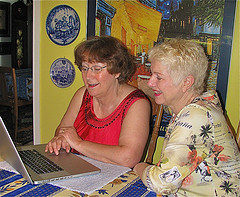“Where is Malawi?” It was a question we were hearing everywhere we went. No one knew where Malawi was located. Some thought it must be in the Hawaiian Islands, others said someplace near Nigeria … maybe. But most just looked at us with a blank stare and waited for us to explain where this unpretentious nation resided on the world map. It was hard to be critical because when one opens a world map the nation of Malawi is little more than a tiny yellow dot deep in the interior of Africa. To top off the image of invisibility tiny Malawi has never been in a war with any of its neighbors, has never been invaded by a foe, and holds democratic elections for its public officials without armed conflict. Malawi has few resources, and does not sit at a strategic crossroads of political influence. If one had a hard time finding people who knew the location of Malawi, it was even more difficult to find anyone, anywhere who knew anything about the Malawi Project. After all, it was only two years old and still trying to find its wings.
Into this empty void came the worst famine Malawi had experienced in over 50 years, and the need for food, medical supplies, and other critical goods hit the top of the needs list for the nation. The Malawi Project was new, and had little knowledge, resources, or contacts through which to aid the people who were dying of starvation, malaria, HIV/Aids, and a number of other problems that could be relieved with the simple solution of trailers of supplies going to the hospitals, schools, villages, and trading centers throughout the nation. The Malawi Project faced a bleak future without aid assistance. Enter Universal Aide from western Canada.
Contact between the Malawi Project and Universal was made, and the first trailer of medical supplies was off to Malawi at the height of the great famine. “This will be the only one. I can send you only one,” Shirley Gremyachev, the Director for Universal, said to Suzi Stephens on the phone. 
With a trailer of medical supplies valued in excess of a quarter of a million dollars, the Malawi Project, with the support from Universal, set out to “change the healthcare of the nation”. Universal was up to the challenge. Joining with its own network of suppliers, Universal Aide put the Malawi Project directly into the heart of famine and medical relief. After offering the one shipment in 2002, an additional 8 shipments were added to the list. In 2003 the number of trailers earmarked to the Malawi Project went up to 25. In 2004 the total added another 10 to the list, and the relationship between Universal, the Malawi Project, and the goal of changing the healthcare of the nation grew to include increasing the educational resources of the nation, influencing the agricultural output of the farm community, and generally helping to raise the quality of life for people throughout the three regions of Malawi. Because of Universal the Malawi Project gained national reputation in the highest levels of tribal and national government circles, and was given open doors in many areas with which to extend aid that could make a difference in the lives of the people.
“One never knows where one phone call can lead you,” notes Richard Stephens, one of the founders of the Malawi Project. “Imagine if Suzi had not made that phone call to Shirley on that most important day back in 2002. And, imagine if Shirley had not been available or tied up with something else, and unable to take the call? We might still be looking at the critical need, watching people die needlessly, finding ourselves hopelessly empty handed, and feeling the deep despair of not being able to do anything to help them.”
Concerning the way this all came about, Suzi notes, “May God be glorified by the way He brought these two organizations together to bring aid to Malawi. He is just so magnificent in the way He touches hearts to accomplish His goals.”
